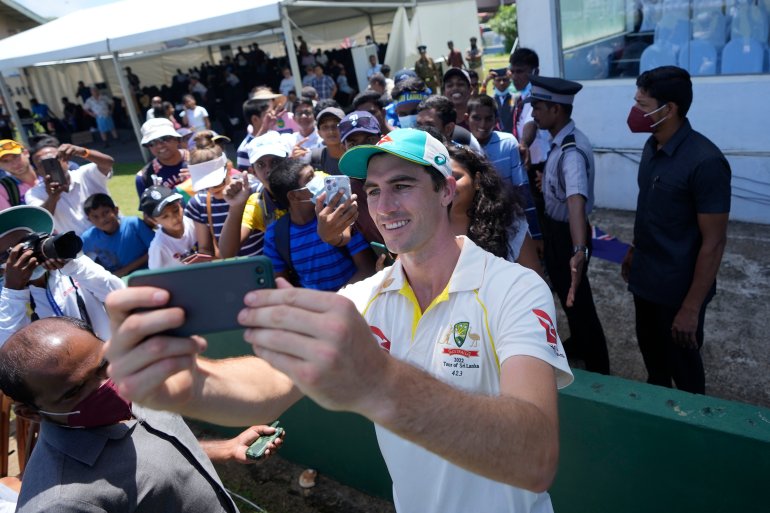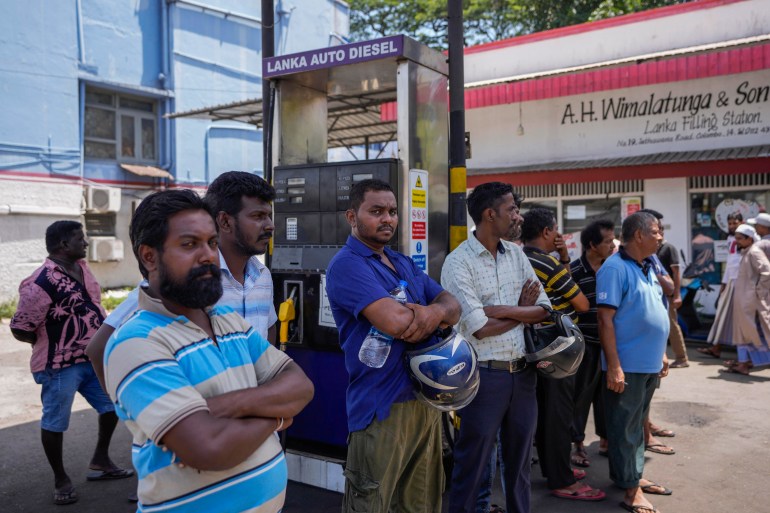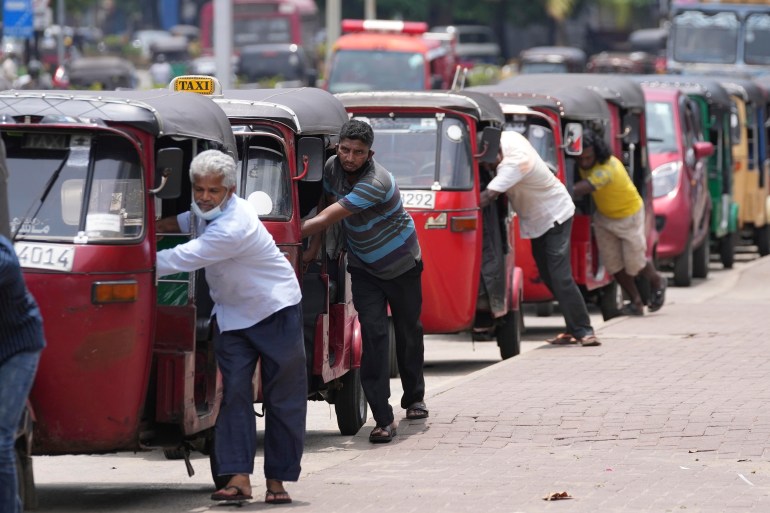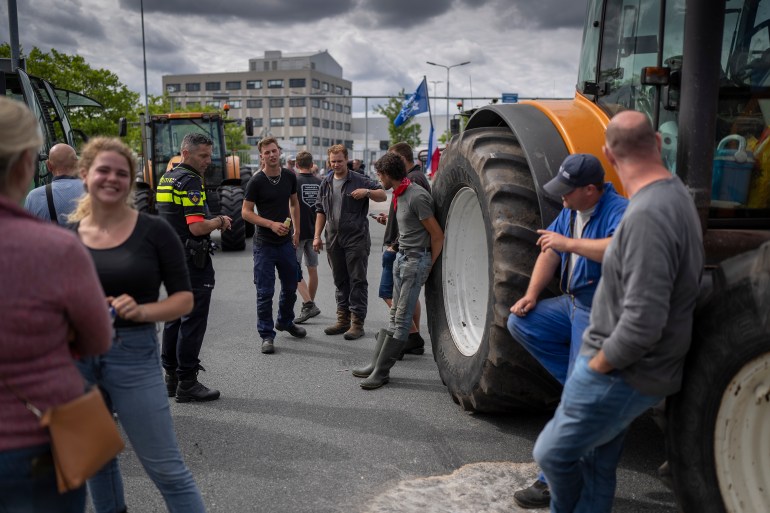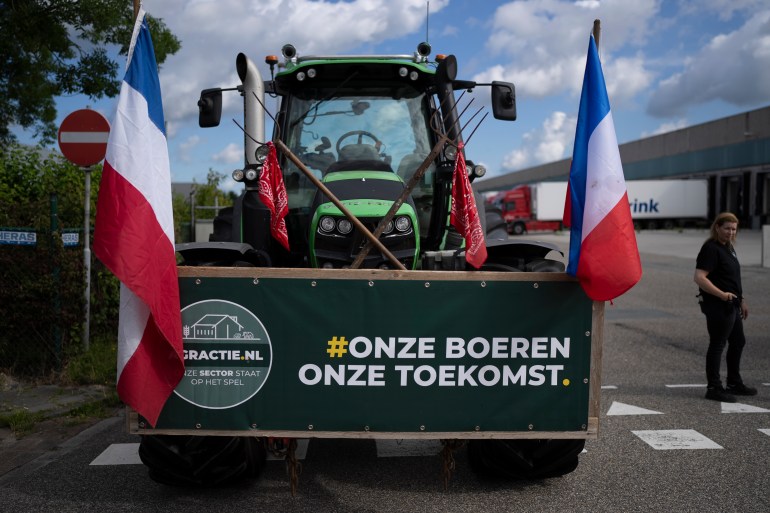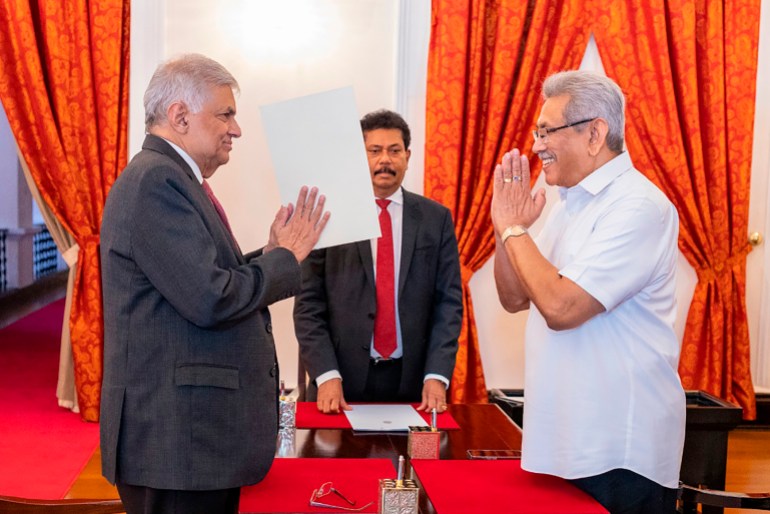‘He’s not our president’: Protesters reject new Sri Lankan leader
Protesters hit the streets as parliament elects Ranil Wickremesinghe as the crisis-hit country’s new president.
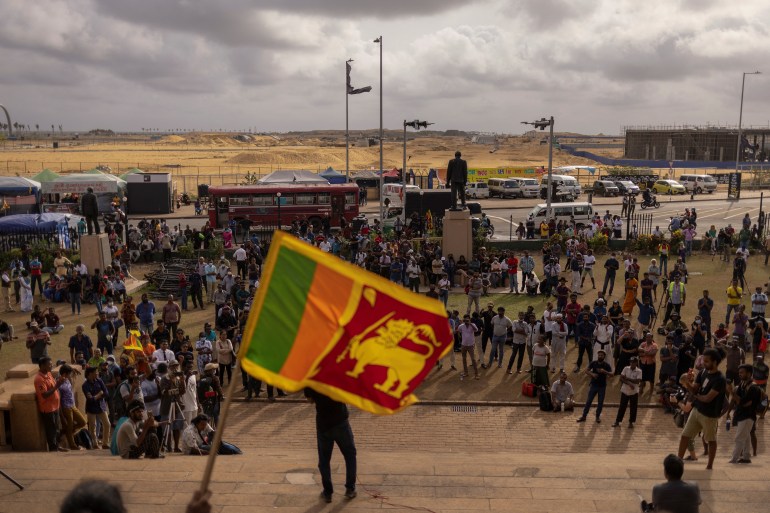
Hundreds of protesters gathered at the GotaGoGama site in Colombo on Wednesday, where only last week they had celebrated Gotabaya Rajapaksa’s resignation as president.
Addressing the crowds, protest leaders refused to accept six-time Prime Minister Wickremesinghe, 73, as the new head of state, holding him partly responsible for the country’s unprecedented economic and political crisis.
“As you know, the parliament elected a new president today, but that president is not new to us, it is not the people’s mandate,” Wasantha Mudalige, the leader of Inter University Student Federation, told the crowds.
“We managed to kick out Gotabaya Rajapaksa, who secured 6.9 million votes, but Ranil Wickremesinghe has now secured that seat from the back seat,” he added. “Ranil isn’t our president … the people’s mandate is on the streets.”
Protesters set Wickremesinghe’s personal residence on fire and occupied his office during protests last week.
At the protests on Wednesday, speaker after speaker – including Buddhist monks, Catholic clergy, students and artists – refused to endorse the parliament’s choice.
“Ranil Wickremesinghe should know that millions in the streets are much bigger than 134,” said artist Jagath Manuwarna, referring to 134 lawmakers who voted for Wickremesinghe.
While celebratory firecrackers were heard in some parts of the country last week when Sri Lankans heard Rajapaksa had resigned days, no such celebrations greeted Wickremesinghe’s appointment, with just dozens of his supporters seen celebrating on the streets.
Many Sri Lankan protesters were also left unimpressed with Wickremesinghe’s main rival at the election today, Dullas Alahapperuma, as he has no experience of governance in a heavily indebted country desperate for an International Monetary Fund bailout.
Sri Lankans have been protesting for weeks amid an unprecedented economic meltdown that has brought the country to the brink of bankruptcy and increasingly unable to pay for food, fuel and medicine.
